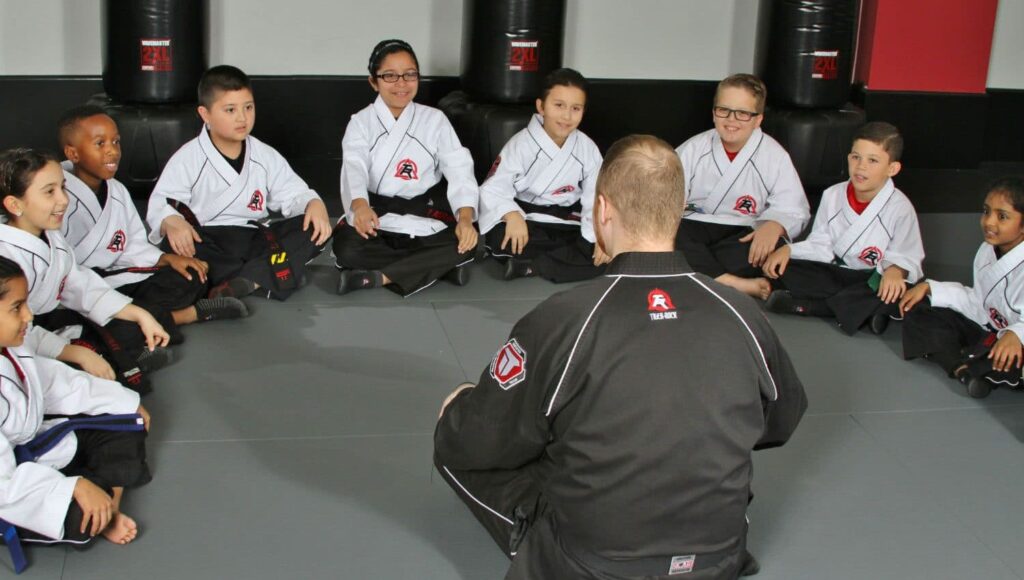
To Quit or Not to Quit
Competitive sports offer kids of all ages so many important life lessons – perseverance, learning to win and lose gracefully, and accepting constructive criticism, to name just a few. Inevitably, in a team environment kids may begin to compare themselves to their teammates. What seems easy for other kids may be hard for them. Particularly in the teen years, when fitting in seems especially important, it may be tempting for kids to assume that they’ll never be able to keep up with their teammates – and jump to conclusions that they should quit the sport altogether – even if it’s one they genuinely love.
So should we let them quit?
To what extent should we push them to stay?
Here’s one critical point to consider: sports may be the best place for your kids to develop not just physical strength, but mental strength, as well. They may not see that at the moment, of course. Instead, all they may see is that a couple of teammates seem to be stronger or better at the sport than they are. As adults, we have the benefit of time and experience to understand the satisfaction and confidence that can come from sticking with a sport – even if we’re not the one winning all of the competitions or recognition.
In an article (“What if I Want to Quit a Sport?”) for KidsHealth.org for nonprofit children’s health system Nemours, Dr. Amy Anzilotti shares several points for teens to consider before they quit a sport – and her suggestions may also be helpful for younger kids and their parents.
If your children feel tired or overwhelmed, they might try doing less of the sport or taking something else off their schedules.
When a child is thinking about quitting, there might be underlying issues at play. Is there an issue with a teammate or coach, for example? Perhaps that teammate or coach isn’t even aware of the issue. It might be time for an informal conversation with them to talk through the challenge and find a solution together. The tone of that conversation should be nonconfrontational and steer clear of blame.
If the issue at hand is bullying, that obviously calls for a more serious discussion. Dr. Anzilotti recommends that parents brainstorm with their kids about ways to deal with a bully. Your strategy will vary depending on whether the bully in question is a teammate or the coach. In either scenario, if a conversation doesn’t stop the bullying, it’s time to find another team.
Kids who say they don’t like their sport anymore may just need to pause temporarily. Encourage your child to stick out the season, then take a few months off. Some kids need a little distance to rediscover their love of a sport.
So how much should we push back when our kids express the desire to quit? The first question you might ask is, what’s your family’s philosophy on quitting? That’s according to Amy Morin in a Jan. 31, 2021, article for VeryWellFamily.com (“Should I Allow My Child to Quit a Sports Team?”) Some families operate under the motto that “We never quit.” Now, that doesn’t necessarily mean your child is stuck to live out her life in a sport she says she doesn’t enjoy anymore. Maybe it just means that she stays put for the duration of the season because she’s made a commitment to her team and can’t let her teammates and coaches down. Then she can revisit her thoughts on continuing (or not). On the other hand, letting your child quit mid-stream (before the end of a competition or season, for example) might give him the impression that any time the going gets tough, he can bail out. Or it might send the message that you support him in all of his endeavors and you’re proud of him for trying. There are also some families out there who operate under the philosophy that parents know what’s best, and therefore, their kids are going to commit to a sport for years at a time – no excuses allowed. That approach may backfire, though, if your kids are then fearful to try anything new because they worry they’ll be stuck with it forever.
A lot of parents will probably fall somewhere in the middle. The decision to quit – or not – is influenced by situational factors but, above all, it’s important that your child feels that she’s heard. In an article for Men’s Journal by Melania Juntti (“6 Signs Your Kid Should Quit a Sport”), Martin Camiré, a sports psychology and youth development expert at the University of Ottawa, says, “Let them know you fully support them in their sport, but if they’re not liking it anymore and want to try something else, you’re open to that as well. If kids feel like they have some autonomy over the decision, they’ll be more compelled to tell you if they’re not having fun.”
Martial arts offers a truly unique experience for kids of all ages. Nobody sits on the bench, all skill levels are invited to participate, and everyone progresses up through the ranks with the same criteria. It’s not only one of the best places for your child to develop strength, athleticism and flexibility, the sport instills in them the spirit of community and service while also promoting the development of their self-discipline, humility, and courage. They’ll also make friendships that will last a lifetime. To learn more about Tiger-Rock Martial Arts, contact us today.